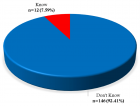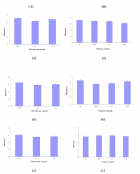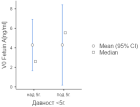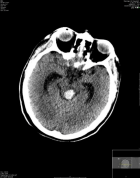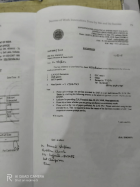Abstract
Review Article
New pharmacological strategies in some metabolic endocrine disorder under a toxicological approach
Luisetto M*, Ghulam Rasool Mashori and Cabianca luca
Published: 09 March, 2018 | Volume 2 - Issue 1 | Pages: 015-021
In this review After Observing biomedical literature (starting from some heart disease) results that some pathological phenomena are deeply involved in some metabolic endocrine condition: Kinetics and gradients in metabolism, catabolism, time related, toxic like effect, electrical cell membrane status, smooth vascular muscle cell hyper-reactivity, platelet iperactivations, central autonomic control after acute stroke, great electrolytes unbalances et other factors as pro-hypertrophic signaling and oxidative stress. Observing actual current therapy in some metabolic endocrine therapy often is used association of drugs (in example in type II diabetes). In Many other pathologies efficacy drug therapy exist, and often only 1 pharmacological molecule resolve the pathological condition. But in many disease even associating 2-3-4 drugs the % of cure not increase (efficacy, effectiveness). It mean that this drugs strategies are not the really best? Or it mean a low active level? Why for this pathological condition this association drugs in currently use not do the right works as really needed? There is the need for new really efficacy drugs strategy that show a profile of efficacy as requested in order to resolve the pathological condition? Or to be added to the actual therapy? The actual pharmacological strategies in some metabolic endocrine disorder is really the best? Or other strategies can be introduced?
Read Full Article HTML DOI: 10.29328/journal.acem.1001006 Cite this Article Read Full Article PDF
Keywords:
Metabolic-endocrine disease; New pharmacological strategies; Toxicology; Antidotes approach; kinetics
References
- Luisetto M, Luca C, Farhan AK, Ghulam RM. Sudden Heart Pathology-a New Research Hipotesys in Drug Design strategy. Mod Appro Drug Des. 2017; 8: 555730. Ref.: https://goo.gl/uKLqCu
- luisetto M, Ahmadabadi BN, Mashori GR. Heart disease new hypotesys:under endogenous toxicological aspect. J Cardiol Cardiovasc Med. 2018; 3: 001-004. Ref.: https://goo.gl/zmW7uG
- Luisetto M. Intra- Local Toxicology Aspect Time Related in Some Pathologic Conditions. Open Acc J of Toxicol. 2017; 2: 002 555586. Ref.: https://goo.gl/ghchpJ
- Luisetto M, Nili-Ahmadabadi Bm, Mashori GR. Surgery and new Pharmacological strategy in some atherosclerotic chronic and acute conditions. Arch Surg Clin Res. 2017; 1: 042-048. Ref.: https://goo.gl/xYWA29
- Katritsis DG, Gersh BJ, Camm AJ. A Clinical Perspective on Sudden Cardiac Death. Arrhythm Electrophysiol Rev. 2016; 5: 177-182. Ref.: https://goo.gl/xoti5Z
- Hung MJ, Hu P, Hung MY. Coronary artery spasm: review and update. Into J Med Sci. 2014; 11: 1161-1171. Ref.: https://goo.gl/hc7ZvS
- Myerburg RJ, Junttila MJ. Sudden cardiac death caused by coronary heart disease. Circulation. 2012; 125: 1043-1052. Ref.: https://goo.gl/bf2HZa
- Sörös P, Hachinski V. Cardiovascular and neurological causes of sudden death after ischemic stroke. Lancet Neurol. 2012; 11:179-188. Ref.: https://goo.gl/5xrqMg
- Avila MD, Escolar E, Lamas GA. Chelation therapy after the Trial to Assess Chelation Therapy: results of a unique trial. Curr Opin Cardiol. 2014; 29: 481-488. Ref.: https://goo.gl/Vk9bkr
- Buxton AE. Sudden death in ischemic heart disease-2017. Int JCardiol. 2017; 237: 64-66. Ref.: https://goo.gl/7FvKnS
- Shen L, Jhund PS, Petrie MC, Claggett BL, Barlera S, et al. Declining Risk of Sudden Death in Heart Failure. N Engl J Med. 2017; 377: 41-51. Ref.: https://goo.gl/tgokvo
- Goldberg IJ, Trent CM, Schulze PC. Lipid Metabolism and Toxicity in the Heart. Cell Metab. 2012; 15: 805-812. Ref.: https://goo.gl/3vbe6d
- Mladěnka P, Applová L, Patočka J, Costa VM, Remiao F, et al. Comprehensive review of cardiovascular toxicity of drugs and related agents. Med Res Rev. 2018. Ref.: https://goo.gl/282h1J
- Trang A, Aguilar D. Treating Disease Mechanisms in Patients with Heart Failure and Diabetes Mellitus. Curr Heart Fail Rep. 2017; 14: 445-453. Ref.: https://goo.gl/xGt3U3
- Sharma A, Green JB, Dunning A, Lokhnygina Y, Al-Khatib SM, et al. Causes of Death in a Contemporary Cohort of Patients With Type 2 Diabetes and Atherosclerotic Cardiovascular Disease: Insights From the TECOS Trial. Diabetes Care. 2017; 40: 1763-1770. Ref.: https://goo.gl/LjdQeR
- Dziubak A, Wójcicka G. The pathophysiological basis of the protective effects of metformin in heart failure. Postepy Hig Med Dosw (Online). 2017; 71: 773-787. Ref.: https://goo.gl/r3oekn
- Editorial Efficacy of Oncologic Drug Therapy Some to Rethink in the Management of the System? Journal of business management and economics. JBME luisetto m
- Arora S, Probst MA, Andrews L, Camilion M, Grock A, et al. A randomized, controlled trial of oral versus intravenous fluids for lowering blood glucose in emergency department patients with hyperglycemia. CJEM. 2014; 16: 214-219. Ref.: https://goo.gl/7A3XEo
- Roussel R, Fezeu L, Bouby N, Balkau B, Lantieri O, et al. Low Water Intake and Risk for New-Onset Hyperglycemia. Diabetes Care. 2011; 34: 2551-2554. Ref.: https://goo.gl/LCiw1q
Similar Articles
-
New pharmacological strategies in some metabolic endocrine disorder under a toxicological approachLuisetto M*,Ghulam Rasool Mashori,Cabianca luca. New pharmacological strategies in some metabolic endocrine disorder under a toxicological approach. . 2018 doi: 10.29328/journal.acem.1001006; 2: 015-021
Recently Viewed
-
A Resurgence of the Idea of Hypertriglyceridemia and Lower Serum (HDL-C) as Predictive Factors for Insulin Resistance (IR) & Type 2 Diabetes Mellitus Development: A Narrative ReviewKulvinder Kochar Kaur*. A Resurgence of the Idea of Hypertriglyceridemia and Lower Serum (HDL-C) as Predictive Factors for Insulin Resistance (IR) & Type 2 Diabetes Mellitus Development: A Narrative Review. New Insights Obes Gene Beyond. 2025: doi: 10.29328/journal.niogb.1001022; 9: 001-012
-
Novel Mutation in Famous Gene Diseases in Red Blood CellsMahdi Nowroozi*. Novel Mutation in Famous Gene Diseases in Red Blood Cells. New Insights Obes Gene Beyond. 2025: doi: 10.29328/journal.niogb.1001023; 9: 013-020
-
Physical Performance in the Overweight/Obesity Children Evaluation and RehabilitationCristina Popescu, Mircea-Sebastian Șerbănescu, Gigi Calin*, Magdalena Rodica Trăistaru. Physical Performance in the Overweight/Obesity Children Evaluation and Rehabilitation. Ann Clin Endocrinol Metabol. 2024: doi: 10.29328/journal.acem.1001030; 8: 004-012
-
The Role of Genetic Mutations in the HPGD & SLCO2A1 Genes in Pachydermoperiostosis SyndromeShahin Asadi*,Arezo Zare,Sima Koohestani. The Role of Genetic Mutations in the HPGD & SLCO2A1 Genes in Pachydermoperiostosis Syndrome. J Genet Med Gene Ther. 2025: doi: 10.29328/journal.jgmgt.1001013; 8: 001-005
-
Estimation of Radiation Dose to Blood Vessels and Components from Medical Imaging Procedures: Current StatusKhalid M Aloufi*. Estimation of Radiation Dose to Blood Vessels and Components from Medical Imaging Procedures: Current Status. Arch Vas Med. 2025: doi: 10.29328/journal.avm.1001020; 9: 001-002
Most Viewed
-
Causal Link between Human Blood Metabolites and Asthma: An Investigation Using Mendelian RandomizationYong-Qing Zhu, Xiao-Yan Meng, Jing-Hua Yang*. Causal Link between Human Blood Metabolites and Asthma: An Investigation Using Mendelian Randomization. Arch Asthma Allergy Immunol. 2023 doi: 10.29328/journal.aaai.1001032; 7: 012-022
-
Impact of Latex Sensitization on Asthma and Rhinitis Progression: A Study at Abidjan-Cocody University Hospital - Côte d’Ivoire (Progression of Asthma and Rhinitis related to Latex Sensitization)Dasse Sery Romuald*, KL Siransy, N Koffi, RO Yeboah, EK Nguessan, HA Adou, VP Goran-Kouacou, AU Assi, JY Seri, S Moussa, D Oura, CL Memel, H Koya, E Atoukoula. Impact of Latex Sensitization on Asthma and Rhinitis Progression: A Study at Abidjan-Cocody University Hospital - Côte d’Ivoire (Progression of Asthma and Rhinitis related to Latex Sensitization). Arch Asthma Allergy Immunol. 2024 doi: 10.29328/journal.aaai.1001035; 8: 007-012
-
An algorithm to safely manage oral food challenge in an office-based setting for children with multiple food allergiesNathalie Cottel,Aïcha Dieme,Véronique Orcel,Yannick Chantran,Mélisande Bourgoin-Heck,Jocelyne Just. An algorithm to safely manage oral food challenge in an office-based setting for children with multiple food allergies. Arch Asthma Allergy Immunol. 2021 doi: 10.29328/journal.aaai.1001027; 5: 030-037
-
Snow white: an allergic girl?Oreste Vittore Brenna*. Snow white: an allergic girl?. Arch Asthma Allergy Immunol. 2022 doi: 10.29328/journal.aaai.1001029; 6: 001-002
-
Cytokine intoxication as a model of cell apoptosis and predict of schizophrenia - like affective disordersElena Viktorovna Drozdova*. Cytokine intoxication as a model of cell apoptosis and predict of schizophrenia - like affective disorders. Arch Asthma Allergy Immunol. 2021 doi: 10.29328/journal.aaai.1001028; 5: 038-040

If you are already a member of our network and need to keep track of any developments regarding a question you have already submitted, click "take me to my Query."







